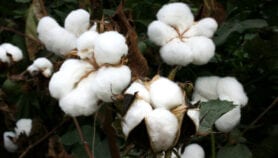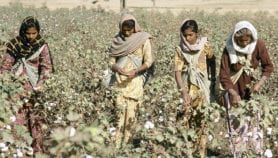By: Wagdy Sawahel
Send to a friend
The details you provide on this page will not be used to send unsolicited email, and will not be sold to a 3rd party. See privacy policy.
In 2003, Asia matched Western Europe and North America in the number of papers published on the genetic modification of plants, according to a report in the November issue of Nature Biotechnology.
By analysing publications from 1973-2003 in two major databases — the ISI Web of Science and CAB Abstracts — Philippe Vain of the UK-based John Innes Centre, concluded that: “Currently, only the impact (the number of citations) differentiates the output of North America, Western Europe and Asia”.
The study showed that while publications on both applications of ‘transgenic’ techniques and their use in developing new genetically modified (GM) crops are increasing, papers describing new technologies for such research have not increased significantly since 1995.
“This is despite strong growth in China and India,” says the study, which defined Asia broadly to include the Middle East. It predicts that this trend could hamper the further evolution of basic and applied transgenic science and the development of GM crops.
However, Anwar Nasim, president of the Federation of Asian Biotech Associations and chair of Pakistan’s National Commission on Biotechnology, disagrees.
Speaking to SciDev.Net, Nasim said Vain’s study simply reflects the “logical and expected” growth of a new field of research — from an initial burst of papers on technological development, through ways of applying this technology, to a focus on specific applications such as individual GM crops.
Vain, while agreeing that the decline in developing new technologies indicates “an element of technological maturity”, says his ongoing studies show that within countries there often is a strong relationship between total effort towards developing initial technologies and the resulting number of publications on applications including GM crops.
This suggests that a decrease in developing initial technologies is not a positive sign for plant transgenic science as a whole, Vain told SciDev.Net. “My overall impression is that much remains to be done in improving the efficiency and control of genetic transformation technologies for many plant species.”
Vain added that it remains unclear how well GM research on ‘orphan crops’ from developing countries — which are locally important but receive little investment — are represented in international databases.
“The case of Africa is particularly problematic. Only a few hundred bibliographic records focusing on plant transgenic science and technology from Africa could be found in international databases such as ISI and CAB Abstracts,” he said.













